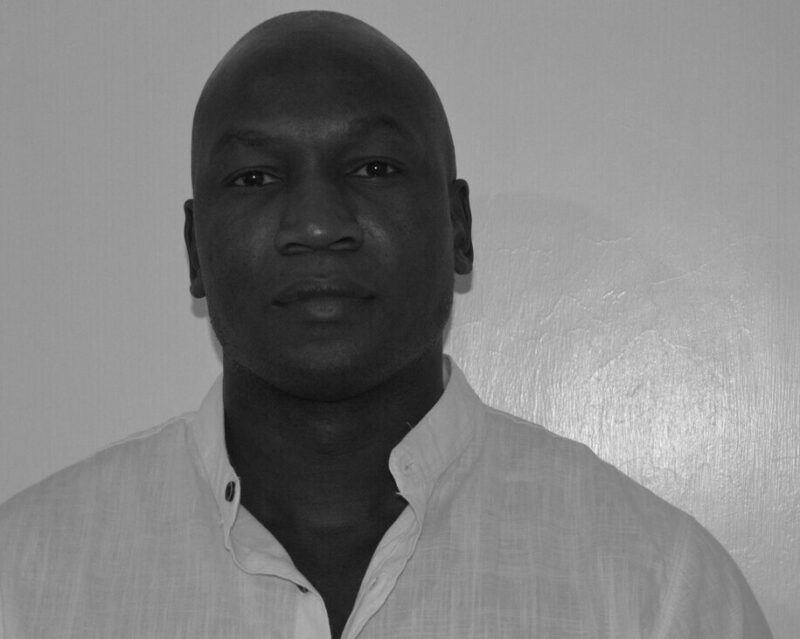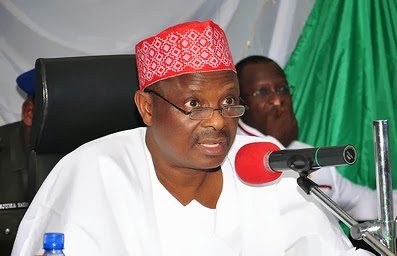Democracy & Governance
Press Freedom in Kenya and Why the Political Class Must Stop Blowing Hot and Cold -By Ohaga Ohaga
On May 11, 2015, during a rally in Bomet, former president Uhuru Kenyatta was quoted saying “Gazeti ni ya kufunga nyama.” “Newspapers are only useful for wrapping meat.” A statement that would create precedence in media attacks during his 10-year rule.

On May 3, 2023, UNESCO held a special anniversary event at the UN headquarters in New York. This was to mark 30 years since the UN General Assembly’s proclaimed an international day for press freedom.
This year’s theme was “Shaping a Future of Rights: Freedom of Expression as a Driver for all other human rights”. This title was to signify the enabling element of freedom of expression to enjoy and protect all other human rights. What made this year’s celebration special is that the fete also coincided with the 30th centenary of the Vienna Conference and its Declaration and Programme of Action on Human Rights, and with the 75th anniversary of the Universal Declaration of Human Rights.
Locally, the media industry converged at the Safari Park Hotel to celebrate the day. During the event hosted by the Media Council of Kenya, and brought on board several media players including, the Association of Media Women in Kenya, the Media Complaints Commission, the Media Owners Association, the Communications Authority of Kenya, the Kenya Editors Guild, Kenya Union of Journalists, Internews Network, Centre for Multiparty Democracy, etc., there was a consensus among the participants that whereas media space is vibrant, much still needs to be done particularly concerning the protection of media independence, media sustainability in the face of shrinking avenues of revenue and ensuring safety and security of journalists.
Media Industry Gains
Since the proclamation of May 3 as the World Press Freedom Day in 1993, so much has happened towards freeing the shackles that for the longest time chained the media industry to the whims of political administrations. Often due to a lack of laws that expressly outlined freedom of the press, this declaration created a good and much-needed platform for media activists and participants to front their agenda and force the governments many that were autocratic in dealing with the media to reconsider their positions.
Today, substantial progress has been made towards enabling a free press and the enjoyment of freedom of expression around the world. Kenya for example, isn’t just a signatory to international treaties but has also enshrined freedom of expression, media freedom, and access to information through Articles 33, 34, and 35 of the Constitution. Further cementing media rights in Kenya is the clear legal framework that guides media practice including laws such as the Kenya Information and Communications Act, 1998, the Access to Information Act, 2016, and the Media Council Act, 2013.
Relatedly, there has been an increase in media ownership especially by private citizens. This media pluralism has then allowed consumers to have many choices in the consumption of media content. Pointedly, with better laws, media practitioners have also professionalized their practice through the creation of professional bodies.
There is limited literature to support the argument that the proclamation of May 3 as Press Freedom Day necessitated the above achievements, however, there is a correlation to the fact that it’s after this proclamation that media reforms gained momentum.
With the advent of social media and proliferation of independent media and the rise of digital technologies enabling the free flow of information online, media in Kenya have been one of the most vibrant in east and central Africa.
While there have been great strides, they have been great setbacks as well. Whereas the media is doing better compared to 30 years ago, the industry is still confronted by the lukewarm position of politicians. In more than one case, the political class has either through omission or commission orchestrated the decline of media space in the country.
Politicians Blowing Hot and Cold
On May 11, 2015, during a rally in Bomet, former president Uhuru Kenyatta was quoted saying “Gazeti ni ya kufunga nyama.” “Newspapers are only useful for wrapping meat.” A statement that would create precedence in media attacks during his 10-year rule.
In the recent past, politicians and those in government and in public agencies have increasingly criticized the media or called for expanded laws to rein in the media, perhaps to reduce the media independence of the media.
In 2022, at the height of the electioneering period, journalists were profiled as they did their work in what they alleged were biases linked to how the 2022 elections were being covered.
In March 2023, Raila Odinga called for a mass boycott of the Star newspaper on allegations of being biased towards Azimio coalition. Raila has been linked to the struggle for press freedom, which has been an essential partner in his push for good administration, and the safeguarding of fundamental rights.
Relatedly, in March 2023, Deputy President Rigathi Gachagua accused sections of the press of being sponsored by those he described as ‘milk cartels’ to reprimand him. Not long after, Kericho Senator and Senate Leader of Majority, Aaron Cheruiyot through his Twitter handle criticized the media terming it a ‘’cartel’’. The two officers conveniently forgot that press freedom is a fundamental right enshrined in the Constitution they swore to protect when they took office.
Just last week in the wake of revelations of what is now considered a massacre in Kilifi, Interior CS, Kindiki barred the media from covering the Shakahola cult deaths without any justification. These are just but a few examples where the political class entrusted to defend and uphold the law have blown cold and hot on media liberties.
Kenyan Media Space in Statistics
In his article published on May 3, Media Council of Kenya CEO, David Omwoyo admitted that his organization documented 104 incidences which were the highest in the last five years. Further, he noted that operations of local media houses have not been without internal and external challenges such as digital disruption, dwindling revenues, intimidation, and physical attacks among others. Some of the incidences recorded by the MCK included the brutality meted on journalists during opposition-led protests in the country.
According to Reporters Without Borders (RSF), Kenya ranked 103 in 2020 globally in the media freedom index and 102 in 2021. In 2022, it ranked 69th. Hhowever, in 2023, Kenya’s media have been ranked 116 indicating a very sharp decline in press freedom.
The country experienced the most violations against media and journalists in 2022. The assassination of a Pakistani journalist in Kenya in October 2022 is one of the examples that highlighted the dangers that journalists confront in this country.
Further, on April 2, 2023, the Kenya Media Sector Working Group, a caucus of press freedom advocacy organizations, urged authorities to exercise restraint, citing more than 20 cases of attacks and violations against journalists, including harassment, arbitrary arrests, and physical assaults, broken equipment. State actors, and opposition supporters, were responsible for or encouraged a major share of these attacks.
The report indicated that two journalists from Royal Media Services were physically assaulted, as were two journalists from Africa Uncensored, who were held and then freed by police. Protesters physically assaulted two journalists from Agence France Presse (AFP) and the Chinese network CGTN. Police forced one Nation TV journalist to delete her protest recordings, while another, Eric Insita, was hurt and transported to the hospital for medical treatment. Citizen TV journalists were also targeted.
On paper, Kenyan media it appears enjoys a lot of liberties, however, in practice, the media industry is perhaps the most regulated. Even with the Constitutional provisions, there has been an allegation of editorial interference. The need to control the media stems from fear of the ruled learning about the truth. It’s also because the rulers are afraid of the governed and in a bid to contrive their thinking and minimize oversighting and questions, control what they know. It’s also due to fear of exposing the government under deals and incompetence.
Unnecessary Media Laws
Whereas Kenya has Articles 33, 34, and 35 clearly outline Kenya’s legal framework on the liberties of the citizens. The freedom to seek information is as is seen in Article 33 of the Constitution.
However, there still exist many laws in Kenya that laws that also govern media practice that call the fundamental principles of press freedom into question. Article 34, particularly, guarantees freedom and independence of the media as inherent liberty, the media space also finds itself threatened by at least 20 more other pieces of legislation such as The Kenya Broadcasting Act, Cap 221 of 1988; The Copyright Act, Cap 130; 1966; The Books and Newspapers Act, Cap 111; 1930, The Defamation Act, Cap 36; 1970; The Armed Forces Act, Cap 199; 1968, The Official Secrets Act, Cap 187 of 1968; The Preservation of Public Security Act, Cap 57; 1960, The Public Order Act, Cap 56; 1950; The Police Act, Cap 84; 1988, The Penal Code, Cap 63; 2014 and The Chief’s Authority Act, Cap 128; 1937. National Police Service Commission Act, National Intelligent Service Act, Kenya Defence Forces Act, Copy Right Act, and the Penal Code) among others.
Independent Media as a Measure of Democracy
Moving forward, the political class must stop blowing hot and cold on press freedom. They must be reminded that press freedom is not a privilege but a right provided for in the Constitution. They can’t choose what laws to uphold and which ones to ignore.
Secondly, the government should desist from making dangerous pronouncements that would otherwise erode the gains the Kenyans and media industry worked so hard to achieve.
Thirdly, the media exists, to tell the truth to power. Media is never anyone’s friend and it doesn’t aspire to be. Politicians should not expect the media to only write what they want to read or speak what they want to hear but to present facts as truth as they are.
Lastly, it must be noted that to measure a country’s level of democracy, one must measure how free the media is in the said country.
The author is a Kenyan journalist, writer, and communication specialist with a special interest in media law and political communication. He remains a close observer of, and participant in, Journalism and the Media.



















